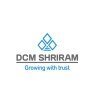
i
Privi Speciality
Chemicals
Filter interviews by
Privi Speciality Chemicals Interview Questions and Answers
21 Interview questions
I monitor and control processes using DCS, ensuring optimal performance and safety in operations.
Monitoring real-time data from sensors and instruments to ensure system stability.
Adjusting control parameters to optimize process efficiency, such as flow rates and temperatures.
Troubleshooting alarms and alerts to identify and resolve issues promptly.
Generating reports on system performance and maintenance activities...
Control valves regulate fluid flow and pressure in various systems, ensuring optimal performance and safety.
Control valves adjust flow rates based on signals from controllers.
They can be used in HVAC systems to regulate temperature.
In chemical processing, they control the flow of reactants.
Examples include globe valves, ball valves, and butterfly valves.
They help maintain system pressure and prevent overpressure s...
A Distributed Control System (DCS) is an automated control system that manages complex processes across multiple locations.
DCS consists of a network of controllers distributed throughout the system.
It allows for real-time monitoring and control of industrial processes.
Examples include power plants, oil refineries, and chemical processing facilities.
DCS enhances reliability and flexibility by decentralizing control...
Creating a new method in GC involves defining the method, implementing it, and integrating it into the existing framework.
Define the method signature, including parameters and return type.
Implement the method logic, ensuring it adheres to GC standards.
Test the method thoroughly to ensure it functions correctly.
Integrate the method into the existing GC framework, updating any necessary documentation.
Heat exchanger design involves determining the size, shape, and materials of the exchanger to efficiently transfer heat between two fluids.
Heat exchanger design involves selecting the appropriate type of exchanger (e.g. shell and tube, plate heat exchanger)
Calculating the required heat transfer area based on the heat duty and heat transfer coefficients
Selecting materials that can withstand the operating conditions...
Heat exchangers transfer heat between two fluids without mixing them, while condensers convert vapor into liquid by removing heat.
Heat exchangers transfer heat between two fluids without mixing them
Condensers convert vapor into liquid by removing heat
Heat exchangers are used in HVAC systems, refrigeration units, and chemical processing plants
Condensers are commonly found in air conditioning units, distillation col...
The 3rd Law of thermodynamics states that the entropy of a perfect crystal at absolute zero is zero.
The 3rd Law of thermodynamics states that as the temperature of a system approaches absolute zero, the entropy of the system also approaches zero.
It is impossible to reach absolute zero in practice, but this law helps in understanding the behavior of systems at extremely low temperatures.
This law is important in the...
There are typically two closed loops in a distillation column - one for reflux and one for reboiler.
One closed loop is for reflux, where a portion of the condensed liquid is returned to the column as reflux to improve separation efficiency.
Another closed loop is for the reboiler, where heat is added to the bottom of the column to vaporize the liquid mixture.
These closed loops help maintain the necessary temperatur...
I prioritize based on urgency, assess available information, consult with team if needed, and make a quick decision.
Prioritize based on urgency of the situation
Assess available information quickly
Consult with team members if needed
Make a quick decision based on the information gathered
A pressure cooker is a kitchen appliance that cooks food quickly by trapping steam inside the pot.
Water is added to the pot and heated to create steam
The steam builds up pressure inside the pot, raising the boiling point of water
This allows food to cook faster than traditional methods
The pressure is released through a valve when cooking is complete
Pressure cookers are commonly used for cooking rice, beans, and ste...
Privi Speciality Chemicals Interview Experiences
17 interviews found
I appeared for an interview in Apr 2025, where I was asked the following questions.
- Q1. What is a Distributed Control System (DCS)?
- Ans.
A Distributed Control System (DCS) is an automated control system that manages complex processes across multiple locations.
DCS consists of a network of controllers distributed throughout the system.
It allows for real-time monitoring and control of industrial processes.
Examples include power plants, oil refineries, and chemical processing facilities.
DCS enhances reliability and flexibility by decentralizing control func...
- Q2. What tasks are you performing on the distributed control system (DCS)?
- Ans.
I monitor and control processes using DCS, ensuring optimal performance and safety in operations.
Monitoring real-time data from sensors and instruments to ensure system stability.
Adjusting control parameters to optimize process efficiency, such as flow rates and temperatures.
Troubleshooting alarms and alerts to identify and resolve issues promptly.
Generating reports on system performance and maintenance activities for ...
- Q3. What are control valves and their functions?
- Ans.
Control valves regulate fluid flow and pressure in various systems, ensuring optimal performance and safety.
Control valves adjust flow rates based on signals from controllers.
They can be used in HVAC systems to regulate temperature.
In chemical processing, they control the flow of reactants.
Examples include globe valves, ball valves, and butterfly valves.
They help maintain system pressure and prevent overpressure situat...
I applied via LinkedIn and was interviewed in Feb 2024. There was 1 interview round.
(4 Questions)
- Q1. Introduce yourself
- Ans.
I am a recent graduate with a degree in Business Administration and a passion for marketing and project management.
Recent graduate with a degree in Business Administration
Passionate about marketing and project management
Strong communication and organizational skills
Experience in internships and extracurricular activities
- Q2. What is 3rd Law of thermodynamics?
- Ans.
The 3rd Law of thermodynamics states that the entropy of a perfect crystal at absolute zero is zero.
The 3rd Law of thermodynamics states that as the temperature of a system approaches absolute zero, the entropy of the system also approaches zero.
It is impossible to reach absolute zero in practice, but this law helps in understanding the behavior of systems at extremely low temperatures.
This law is important in the stud...
- Q3. What is the difference between heat exchanger and condenser?
- Ans.
Heat exchangers transfer heat between two fluids without mixing them, while condensers convert vapor into liquid by removing heat.
Heat exchangers transfer heat between two fluids without mixing them
Condensers convert vapor into liquid by removing heat
Heat exchangers are used in HVAC systems, refrigeration units, and chemical processing plants
Condensers are commonly found in air conditioning units, distillation columns,...
- Q4. What is heat exchanger design and rating?
- Ans.
Heat exchanger design involves determining the size, shape, and materials of the exchanger to efficiently transfer heat between two fluids.
Heat exchanger design involves selecting the appropriate type of exchanger (e.g. shell and tube, plate heat exchanger)
Calculating the required heat transfer area based on the heat duty and heat transfer coefficients
Selecting materials that can withstand the operating conditions and ...
Interview Preparation Tips
I applied via LinkedIn and was interviewed in Jul 2024. There was 1 interview round.
(2 Questions)
- Q1. Transformer rating
- Q2. Documentation iso
(1 Question)
- Q1. How many closed loop in distillation column
- Ans.
There are typically two closed loops in a distillation column - one for reflux and one for reboiler.
One closed loop is for reflux, where a portion of the condensed liquid is returned to the column as reflux to improve separation efficiency.
Another closed loop is for the reboiler, where heat is added to the bottom of the column to vaporize the liquid mixture.
These closed loops help maintain the necessary temperature and...
Interview Preparation Tips
I appeared for an interview before May 2024, where I was asked the following questions.
- Q1. Where are you from?
- Ans.
I hail from a vibrant city known for its rich industrial heritage and innovative engineering solutions.
Located in the heart of the Midwest, my city has a strong manufacturing base.
We have several renowned engineering firms that focus on sustainable production.
The community is supportive of new technologies, fostering a culture of innovation.
Local universities collaborate with industries, providing a skilled workforce.
- Q2. Whats your Education?
- Ans.
I hold a Bachelor's degree in Mechanical Engineering and a Master's in Production Engineering, focusing on advanced manufacturing techniques.
Bachelor's degree in Mechanical Engineering from XYZ University, where I gained foundational knowledge in thermodynamics and materials science.
Master's degree in Production Engineering from ABC Institute, specializing in lean manufacturing and process optimization.
Completed a cert...
Graduate Engineer Trainee (Get) Interview Questions & Answers
posted on 20 Feb 2024
I appeared for an interview in Jan 2024.
(1 Question)
- Q1. What is Distillation? Types of Valves? Types of cooling tower.
- Ans.
Distillation is a process used to separate components of a liquid mixture based on differences in boiling points. Valves include gate, globe, ball, and butterfly. Cooling towers include natural draft, mechanical draft, and crossflow.
Distillation is a separation process that involves heating a liquid mixture to create vapor and then cooling the vapor to get the desired components.
Types of valves used in industrial proce...
Technical +Apti and General apti
(1 Question)
- Q1. FM,Thermodynamic
Interview Preparation Tips

(1 Question)
- Q1. Asking about your previous experience and if fresher then will ask about basic.
(1 Question)
- Q1. Technically how you take decisions in emergency conditions etc.
- Ans.
I prioritize based on urgency, assess available information, consult with team if needed, and make a quick decision.
Prioritize based on urgency of the situation
Assess available information quickly
Consult with team members if needed
Make a quick decision based on the information gathered
Interview Preparation Tips
Please don't come, it's my suggestion as your best wisher.
I applied via Company Website and was interviewed in Aug 2023. There were 3 interview rounds.

(1 Question)
- Q1. Technical interview questions asked
(1 Question)
- Q1. How much hike you want
Interview Preparation Tips
I appeared for an interview before Apr 2024, where I was asked the following questions.
- Q1. Tell me about yourself
- Q2. How to create new method in Gc.
- Ans.
Creating a new method in GC involves defining the method, implementing it, and integrating it into the existing framework.
Define the method signature, including parameters and return type.
Implement the method logic, ensuring it adheres to GC standards.
Test the method thoroughly to ensure it functions correctly.
Integrate the method into the existing GC framework, updating any necessary documentation.
- Q3. How to handle OOS.
- Q4. Gc principle, split and split less difference.
- Ans.
GC separates compounds based on volatility; split vs. splitless affects sensitivity and resolution.
Gas Chromatography (GC) separates volatile compounds in a sample.
Split injection allows a portion of the sample to enter the column, reducing sensitivity but increasing speed.
Splitless injection sends the entire sample into the column, enhancing sensitivity for trace analysis.
Example: Split is used for high-concentration ...
- Q5. Uv principle,range
- Q6. Fingerprint region in IR spectroscopy.
- Ans.
The fingerprint region in IR spectroscopy is crucial for identifying molecular structures through unique absorption patterns.
The fingerprint region typically ranges from 400 to 1500 cm⁻¹.
It contains complex absorption bands that are unique to specific molecules.
Common functional groups can be identified outside this region, but the fingerprint region is more specific.
For example, the presence of a carbonyl group (C=O) ...
Interview Preparation Tips
Top trending discussions






Privi Speciality Chemicals Interview FAQs
The duration of Privi Speciality Chemicals interview process can vary, but typically it takes about less than 2 weeks to complete.
Tell us how to improve this page.
Privi Speciality Chemicals Interviews By Designations
- Privi Speciality Chemicals QC Officer Interview Questions
- Privi Speciality Chemicals Executive Interview Questions
- Privi Speciality Chemicals Graduate Engineer Trainee (Get) Interview Questions
- Privi Speciality Chemicals Panel Officer Interview Questions
- Privi Speciality Chemicals Graduate Trainee Interview Questions
- Privi Speciality Chemicals Male Nurse Interview Questions
- Privi Speciality Chemicals Production Engineer Interview Questions
- Privi Speciality Chemicals EHS Officer Interview Questions
- Show more
Interview Questions for Popular Designations
- Executive Interview Questions
- Analyst Interview Questions
- Software Engineer Interview Questions
- Senior Associate Interview Questions
- Senior Engineer Interview Questions
- Graduate Engineer Trainee (Get) Interview Questions
- Accountant Interview Questions
- Senior Software Engineer Interview Questions
- Show more
Overall Interview Experience Rating
based on 22 interview experiences
Difficulty level
Duration
Interview Questions from Similar Companies
Privi Speciality Chemicals Reviews and Ratings
based on 154 reviews
Rating in categories
|
Production Officer
38
salaries
| ₹1.7 L/yr - ₹4.5 L/yr |
|
Officer
27
salaries
| ₹1.7 L/yr - ₹5.5 L/yr |
|
Assistant Manager
22
salaries
| ₹7.1 L/yr - ₹13.7 L/yr |
|
Executive Production
22
salaries
| ₹4.1 L/yr - ₹8.5 L/yr |
|
Panel Officer
21
salaries
| ₹2.6 L/yr - ₹4.6 L/yr |

Berger Paints

Pidilite Industries

SRF

Kansai Nerolac Paints
- Home >
- Interviews >
- Privi Speciality Chemicals Interview Questions












